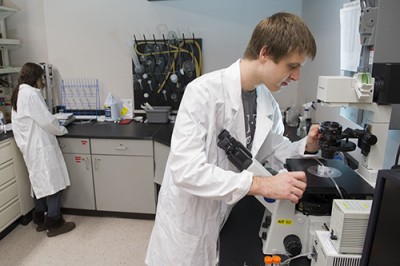Synopsis.
This program seeks to prepare, nurture, and grow the national scientific research workforce for creating, utilizing, and supporting advanced cyberinfrastructure (CI) to enable and potentially transform fundamental science and engineering (S&E) research and education and contribute to the Nation's overall economic competitiveness and security. The goals of this solicitation are to (i) ensure broad adoption of CI tools, methods, and resources by the research community in order to catalyze major research advances and to enhance researchers' abilities to lead the development of new CI; (ii) integrate core literacy and discipline-appropriate advanced skills in advanced CI as well as computational and data-driven methods for advancing fundamental research, into the Nation's undergraduate and graduate educational curriculum/instructional materials; and (iii) build communities of research CI professional staff to deploy, manage, and collaboratively support the effective use of research CI, as well as establish career paths for those staff within and across institutions and science and engineering (S&E) disciplines. Proposals responding to the Pilot and Implementation project classes defined in this solicitation may target one or both of the first two solicitation goals, while proposals responding to the CIP project class must address the third goal. For the purpose of this solicitation, advanced CI is broadly defined as the set of resources, tools, methods, and services for advanced computation, large-scale data handling and analytics, and networking and security for large-scale systems that collectively enable potentially transformative fundamental S&E research and education.
This solicitation calls for innovative, scalable training, education, and curriculum/instructional materials, along with deeper incorporation of CI professionals into the research enterprise — targeting one or more of the solicitation goals — to address emerging needs and unresolved bottlenecks in S&E research workforce development, from the postsecondary level to active researchers to CI professionals. The funded activities, spanning targeted, multidisciplinary communities, should lead to transformative changes in the state of research workforce preparedness for advanced CI-enabled research in the short- and long-term. This solicitation also seeks to broaden CI access and adoption by (i) increasing adoption of advanced CI and of computational and data-driven methods to a broader range of S&E disciplines and institutions; (ii) enhancing the incorporation of CI professionals into the research enterprise – highlighting the value of those professionals in S&E research; and (iii) effectively utilizing the capabilities of individuals from a diverse set of underrepresented groups. Proposals from, and in partnership with, the aforementioned communities are especially encouraged.
There are three project classes as defined below:
- Pilot Projects: up to $300,000 total budget with durations up to two years;
- Implementation Projects: Small (with total budgets of up to $500,000) or Medium (with total budgets of up to $1,000,000) for durations of up to four years; and
- CI Professional (CIP) Projects: up to two full-time equivalents (FTEs) per institution and four FTEs total with durations up to five years.
Program Solicitation: 22-574
Eligibility. There are no restrictions or limits on Pilot or Implementation proposals. Institutions are limited to one CIP proposal per CyberTraining program competition. In the event that an institution exceeds this limit, proposals will be accepted based on earliest date and time of proposal submission, i.e., the first proposal will be accepted, and the remainder will be returned without review. No exceptions will be made.
Deadlines. Internal proposals are due by 5 pm on April 4, 2022. Internal competition decisions are targeted by end of April. Preliminary proposals are due to NSF by May 16, 2022.



